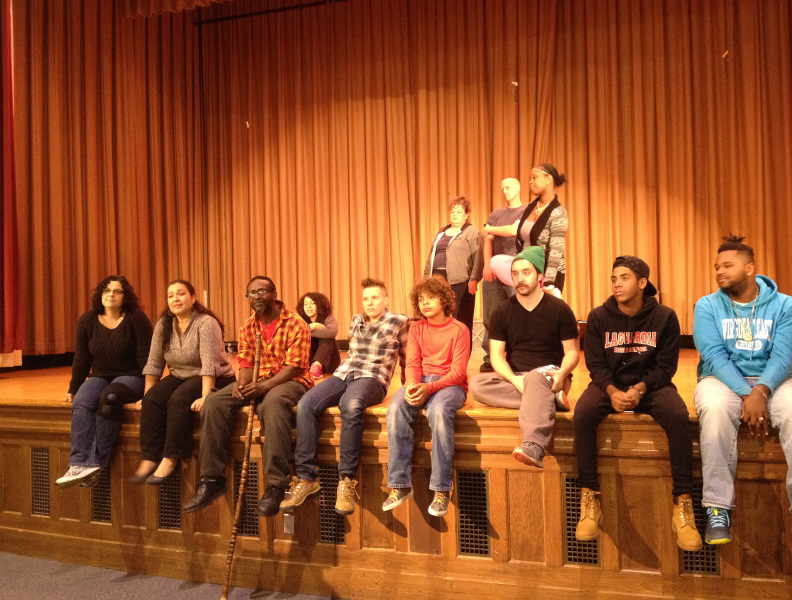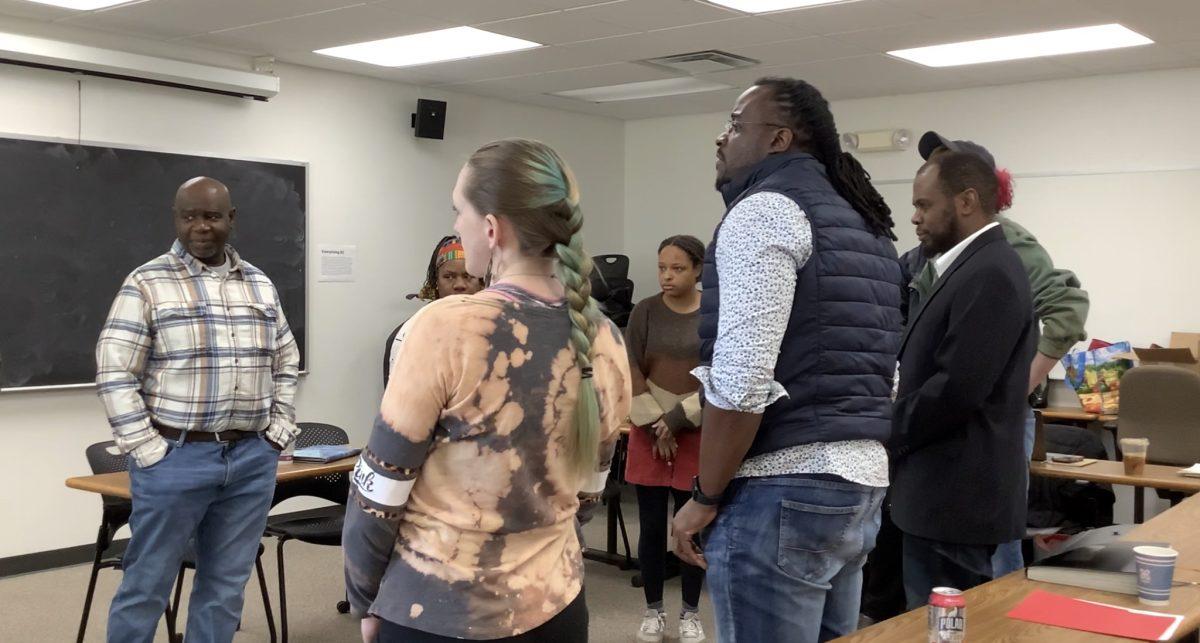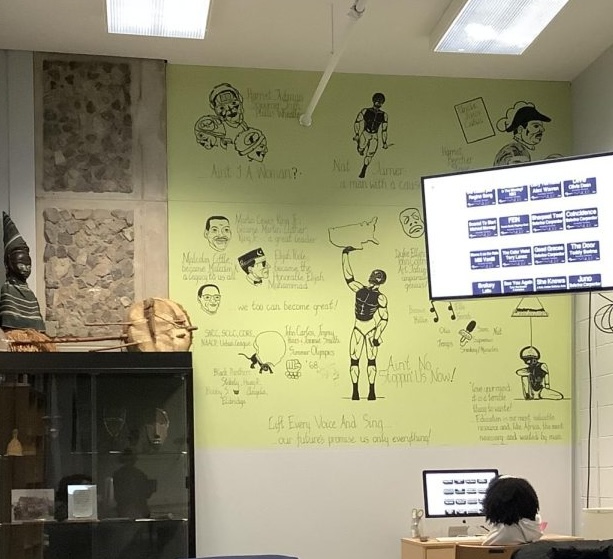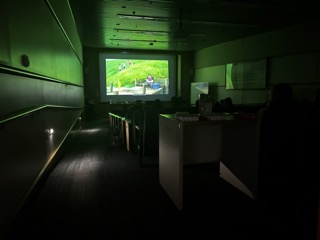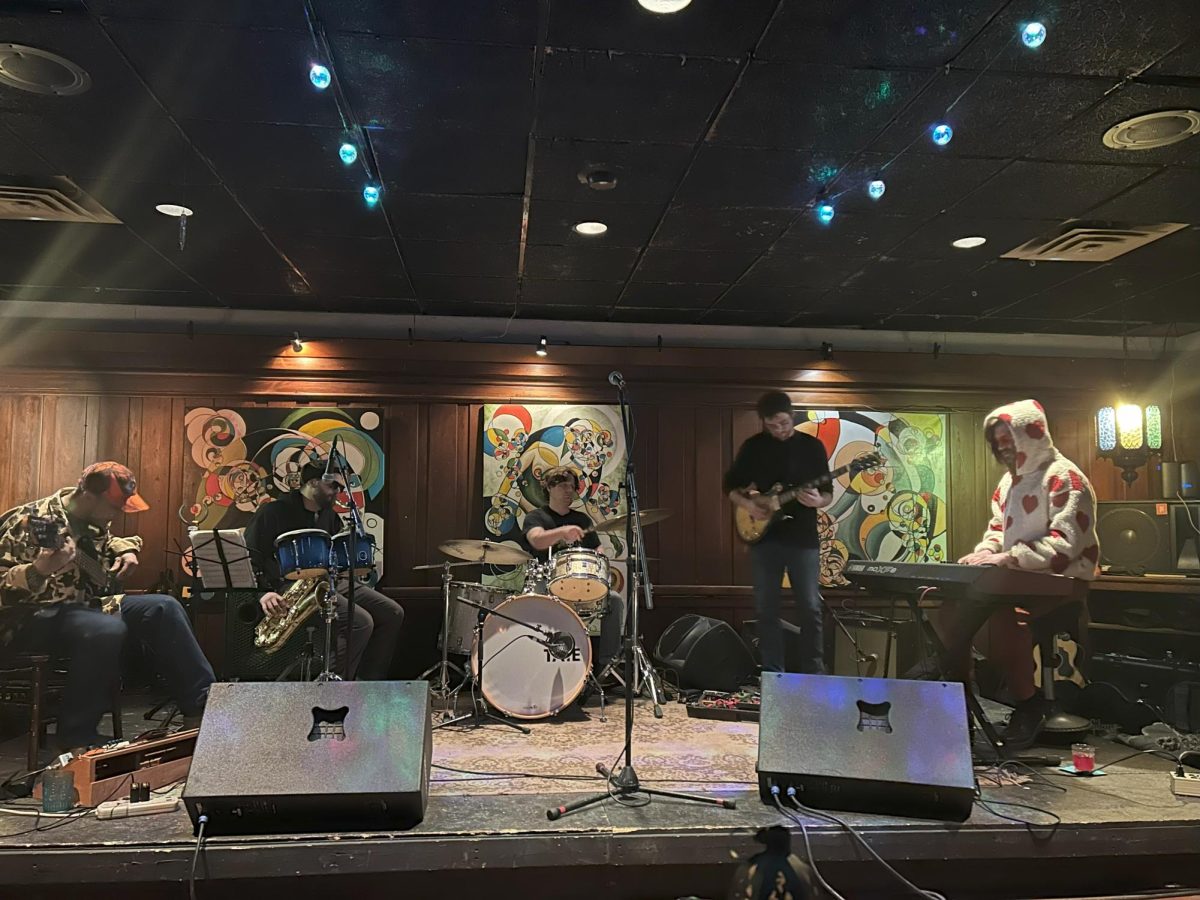Terrell Dickson has seen the effects and constraints of racism first hand. As he reflects back on his experiences with law enforcement and the criminal justice system, his passion is visible.
“I’ve been arrested over 100 times and only convicted once,” Dickson said. As an African American male and actor in Ithaca’s Civic Ensemble theatre company, his role on stage is deeply connected with his personal experiences and past encounters.
“I can relate to the whole thing about a teenager walking in the wrong neighborhood and getting stopped by the police,” Dickson said.
“On the Corner,” a community-based play produced by Civic Ensemble, focuses on race relations at a local level while giving background into the roots of racism. The play ran from Oct. 7 to Oct. 11 at the Beverly J. Martin Elementary School in downtown Ithaca.
“It’s about what’s going on now,” Dickson said. “This play is looking at it from the point of view of the black teenager and the white police officer, who definitely look at things differently.”
Godfrey L. Simmons Jr., artistic director of Civic Ensemble and actor in “On the Corner,” said the organization makes theater accessible to the community. It believes in the idea that theater is everyone’s birthright, both for those on stage and in the audience.
“What’s beginning to happen with our civic engagement projects is that they’re involving so many parts of the community that [normally] don’t get a chance to work together or be together,” Simmons said. “You’ve got people who are ex-felons, you’ve got people who used to act and haven’t acted in 20 years and are now doing it again, you’ve got someone who worked in the prison system, you’ve got somebody who is a professional actor who’s acted for 30 years.”
Having people like Dickson hold key roles in Civic Ensemble productions allows for a true, personal view of what is happening in society.
Sarah K. Chalmers, director of civic engagement with Civic Ensemble, said one of the main goals of the organization is to remove barriers to theater accessibility. Besides the community-based plays, the Civic Ensemble holds classes at the detention center in Lansing, and has a re-entry program for people who are formerly incarcerated, through which people write plays and perform them.
“What the audience doesn’t see is the development of relationships and actual community between the cast, crew, and everybody working on the play,” Chalmers said. “That’s the point of what we do. The play is icing on the cake.”
Simmons said when Civic Ensemble begins constructing these community-based plays, the group involves the community by reaching out and working with them to see what they think is important to talk about.
“This [topic] was something the community wanted to look at and the community wanted to think about,” Simmons said. “For two months in the summer we engaged in a series of workshops with people from the community — there are a lot of people who aren’t in the show that have a lot of input into the play.”
Getting a diverse group together to work on the play was integral to making it a holistic view of problems that people see in society.
“It can’t really be authentic unless you’re striving to get different sections of the community involved, and that’s what’s great about this,” Simmons said.
Bringing together an audience from many different backgrounds is crucial to the Civic Ensemble. While there are suggested ticket prices, all of the organization’s plays are “pay-what-you-want,” which allows everybody access to theater.
“Some people in our audience can afford to buy a Starbucks everyday,” Chalmers said. “Some people in our audience have to scrape together change just to take the bus to get to work. And [both groups] sit next to each other and they see theater.”

